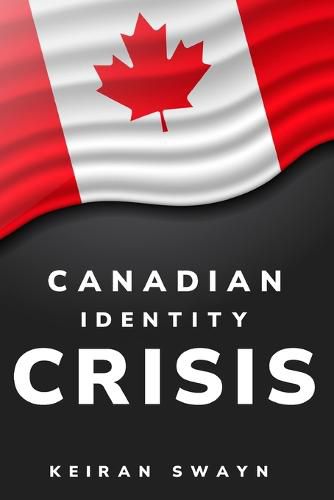Readings Newsletter
Become a Readings Member to make your shopping experience even easier.
Sign in or sign up for free!
You’re not far away from qualifying for FREE standard shipping within Australia
You’ve qualified for FREE standard shipping within Australia
The cart is loading…






This title is printed to order. This book may have been self-published. If so, we cannot guarantee the quality of the content. In the main most books will have gone through the editing process however some may not. We therefore suggest that you be aware of this before ordering this book. If in doubt check either the author or publisher’s details as we are unable to accept any returns unless they are faulty. Please contact us if you have any questions.
Canada has enjoyed a boost to its reputation due to the political and cultural exportation of multiculturalism since its introduction as an official policy in 1971 by Prime Minister Pierre Trudeau and his Liberal government. Encouraged by multiculturalism, some Canadians believe that Canada is unique and that it stands out as one of the most multicultural, harmonious, and tolerant societies in the world.1 In 1991, The Citizens Forum on Canada's Future reinforced the belief that multiculturalism had made Canadian society one of the most tolerant by arguing that Canadians all shared common beliefs such as equality and fairness in a democratic society, the importance of accommodation and dialogue, support for diversity, compassion and generosity, and commitment to global freedom, peace, and non-violent change.2 However, multicultural policy has effectively gaslit Canadians into believing their society is more tolerant than it is, as many scholars have pointed out. Himani Bannerji, Stanley Barrett, and Eve Haque, among others, have all provided distinctive critiques of multicultural policy in Canada. Bannerji points out that Canada is an "imagined community" where racialized people "remain an ambiguous presence and their existence a question mark."3 However, they continue to live in Canada as outliers due to the projection of a tolerant multicultural society towards the international community.
$9.00 standard shipping within Australia
FREE standard shipping within Australia for orders over $100.00
Express & International shipping calculated at checkout
This title is printed to order. This book may have been self-published. If so, we cannot guarantee the quality of the content. In the main most books will have gone through the editing process however some may not. We therefore suggest that you be aware of this before ordering this book. If in doubt check either the author or publisher’s details as we are unable to accept any returns unless they are faulty. Please contact us if you have any questions.
Canada has enjoyed a boost to its reputation due to the political and cultural exportation of multiculturalism since its introduction as an official policy in 1971 by Prime Minister Pierre Trudeau and his Liberal government. Encouraged by multiculturalism, some Canadians believe that Canada is unique and that it stands out as one of the most multicultural, harmonious, and tolerant societies in the world.1 In 1991, The Citizens Forum on Canada's Future reinforced the belief that multiculturalism had made Canadian society one of the most tolerant by arguing that Canadians all shared common beliefs such as equality and fairness in a democratic society, the importance of accommodation and dialogue, support for diversity, compassion and generosity, and commitment to global freedom, peace, and non-violent change.2 However, multicultural policy has effectively gaslit Canadians into believing their society is more tolerant than it is, as many scholars have pointed out. Himani Bannerji, Stanley Barrett, and Eve Haque, among others, have all provided distinctive critiques of multicultural policy in Canada. Bannerji points out that Canada is an "imagined community" where racialized people "remain an ambiguous presence and their existence a question mark."3 However, they continue to live in Canada as outliers due to the projection of a tolerant multicultural society towards the international community.